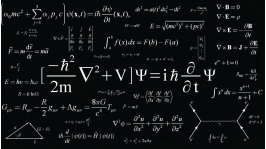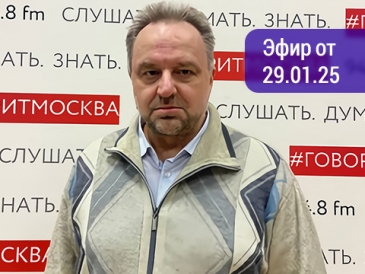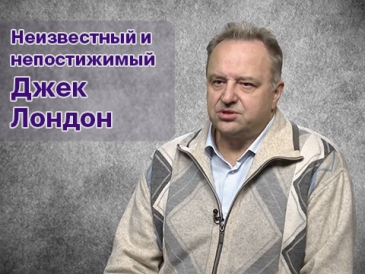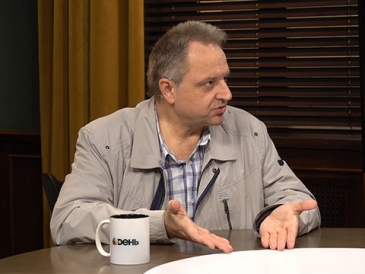Неэргодическая экономика
Авторский аналитический Интернет-журнал
Изучение широкого спектра проблем экономики
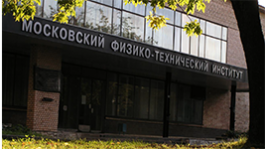
Рейтинг вузов России
Рейтинг вузов России RAEX («Эксперт РА») – интегральная оценка качества подготовки выпускников вуза, определяемая количественными параметрами образовательной и научно-исследовательской деятельности вузов и качественными характеристиками, отражающими мнение ключевых референтных групп: работодателей, представителей академических кругов и научных кругов, а также студентов и выпускников вузов
| Разработчик | Рейтинговое агентство «Эксперт РА» |
| Дата создания | 2012 |
| Периодичность | ежегодно |
| Источник | «Эксперт РА» (RAEX) www.raexpert.ru |
| Индекс доверия | 45.7 |
| Число респондентов | 21 |
| Информация об исследованиях | Ключевая миссия университетов – давать обучающимся знания, навыки и умения – остается неизменной и универсальной вне зависимости от времени или типа университета (научно-исследовательский вуз или вуз, фокусирующийся на подготовке бакалавров для рынка труда). Ключевыми в приведенной триаде являются именно знания, так как они также приводят к развитию навыков и умений и являются главным и непреложным элементом образовательной и научной деятельности университетов, их основным вкладом в развитие общества. Знания – фундамент, на котором строится профессиональный, карьерный, научный и зачастую даже личностный рост выпускников вуза. Наделить знанием, основанным на мыслительной работе, а не на заучивании, знанием, способным привести к генерации нового знания, – это высшая цель для ведущих университетов. |
РЕЗУЛЬТАТЫ ИССЛЕДОВАНИЯ:
| Период | Методология | Рейтинг |
|---|---|---|
| 2012 | Открыть | Открыть |
| 2013 | Открыть | Открыть |
| 2014 | Открыть | Открыть |
| 2015 | Открыть | Открыть |
| 2016 | Открыть | Открыть |
4387
0
19.12.2016
Добавить комментарий:
|
|
|
| Ваше имя: | |
Публикации
Работа посвящена анализу ключевых установок внутри научного сообщества, от которых напрямую зависит образ научно–технологического будущего России. Установлено, что цивилизационная самоидентификация исследователей в значительной степени не совпадает с настроениями широкой общественности. Осторожное, а нередко и скептическое отношение к мобилизации науки, усилившиеся эмиграционные настроения среди учёных, в первую очередь молодых, позволили авторам сделать вывод о кризисном состоянии научного сообщества страны, антагонистически разделённого противоречиями по основным ценностным ориентациям и управленческим вопросам. Объединяющим фактором служит потребность в комфортных условиях труда и востребованность науки государством и обществом. Количественно определено, что только половина исследователей придерживается прогосударственных настроений и может быть потенциально с пользой задействована в решении научно–технических задач. Другая половина научного сообщества становится как минимум группой оппонентов, которые сомневаются или не определились в отношении научно–технологического курса. Молодёжное крыло науки, как оказалось, в значительной степени пронизано космополитизмом и поэтому не представляет собой антикризисную силу. Усиление мобилизационной готовности научного сообщества и разрешение его внутренней конфликтности рассматривается с точки зрения повышения качества управления наукой, включая эффективную кадровую политику.
30.06.2025
Демографический кризис является серьезной угрозой устойчивому развитию любой страны, затрагивающей все аспекты общественной жизни. Для России проблема сокращения численности населения усугубляется огромными территориями, которые могут быть утеряны, если негативная демографическая ситуация не будет преодолена. Целью статьи является моделирование демографического роста в России и определение резервов повышения численности ее населения сквозь призму трех составляющих: эффектов возраста, периода и когорты, которые совмещают в себе материальные и нематериальные факторы влияния. Данная цель предопределила генеральную гипотезу исследования, которая заключается в предположении, что комплексное воздействие на факторы демографического роста может создать такие условия, которые позволят переломить негативный тренд сокращения численности населения страны и в долгосрочной перспективе добиться удвоения численности населения в России, о котором заявляют в политических кругах страны. Для реализации поставленной цели в работе построена трехступенчатая эконометрическая модель роста населения и рассмотрены различные сценарии его достижения. Полученные результаты показали, что для двукратного увеличения численности населения страны в течение 50 лет необходимо повышение суммарного коэффициента рождаемости до уровня 2,85–3,19 и поддержание его на столь высоком уровне в течение 25–35 лет. Для достижения указанных значений необходима системная работа в сфере материальной и нематериальной мотивации по формированию устойчивого образа многодетности в сознании россиян, эффективность которой должна проявляться в укреплении института брака, сокращении числа абортов, снижении среднего возраста матери при рождении детей и сокращении детской смертности. Обязательным атрибутом комплексного подхода является растущее благосостояние населения, которое, согласно расчетам, должно осуществляться ежегодным темпом прироста душевого ВВП на уровне 2,5–5,5%. Выводы исследования могут быть использованы при реализации демографической политики России.
23.06.2025
В статье рассмотрена ситуация военно–стратегического противостояния США и России с наметившейся тенденцией к эскалации конфликта на Украине. Показано, что наблюдаемый парадокс, состоящий в утрате Западом страха перед термоядерным армагеддоном, продуцируется феноменом двойственности положения России после 1991 года, когда ее властные элиты, с одной стороны, подпали под контроль Запада, а с другой – сохраняли способность «восстать» и восстановить политический суверенитет страны с опорой на ее военно–стратегический потенциал. Следствием этого стало еще одно уникальное явление – неопределенность «красных линий» во внешней политике России, когда они либо не озвучивались, либо постоянно отодвигались. Указанные явления привели к тому, что Запад «привык» к избыточной осторожности России и не «слышит» новых сигналов. Ситуация поддерживается и усугубляется отсутствием внешнеполитической гибкости США из–за их приверженности ментальной модели глобального доминирования, включающей четыре элемента: презумпцию богоизбранности американского государства, доктрину непримиримости, стратагему тотальности и синдром отказа от неприемлемых издержек. Эффект неделимости власти, описанный С. Льюксом, накладывается на указанную модель и усугубляет нечувствительность американского истеблишмента к эскалации напряженности на Украине. Показано, что в своей тактике администрация США использует два интеллектуальных «завещания» Джона Даллеса – доктрину «балансирования на грани» и доктрину сносной цены. Так как Россия не создала никакого ощутимого ущерба для США, то им не имеет смысла отказываться от «завещания» Даллеса и поддержания режима эскалации. Обосновано, что для изменения ситуации необходимо осуществить действия по обеспечению неприемлемого ущерба для США в возникшем противостоянии. Обсуждаются конкретные меры по удорожанию американской гегемонии, что позволит отойти от односторонних ударов по России и создать более благоприятный фон для конструктивных переговоров.
13.06.2025
Видео
События
Аналитики Финансового университета обнародовали Рейтинг университетов мирового класса – 2021 / 19 мая
Аналитики Финансового университета представили Рейтинг ведущих экономических журналов России – 2021 / 19 мая
Сотрудники Финансового университета на конференции «Журнала Новой экономической ассоциации» представили новый Рейтинг российских экономических журналов / 13 мая

